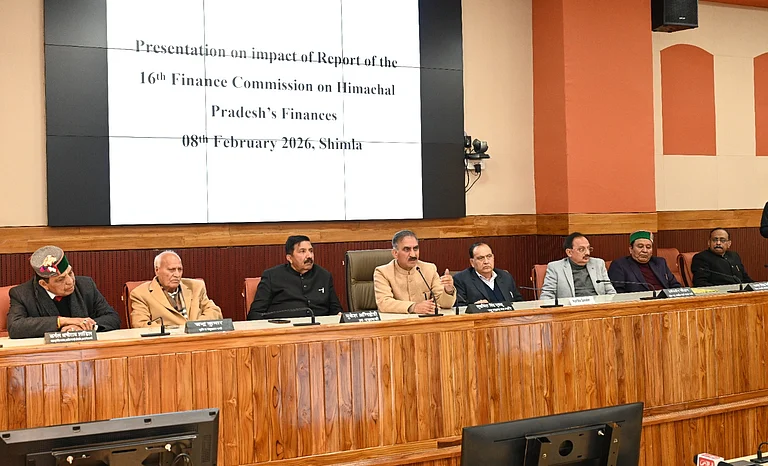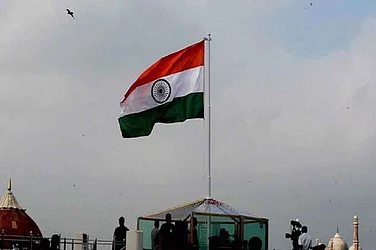Historian S Irfan Habib has said that renaming Rajpath to Kartavya Path has no meaning and that the Bharatiya Janata Party (BJP) government is obsessed with leaving a mark.
Habib, an author of several books, said the renaming exercises is political and is not related to the removing the colonial legacy as claimed by the government.
The comments by Habib come a day after Prime Minister Narendra Modi inaugurated the revamped Central Vista Avenue, the stretch between the Rashtrapati Bhavan and the India Gate. The Rajpath was also renamed as the Kartavya Path.
Habib highlighted in an interview with PTI that the "Raj" in Rajpath meant the "governance" and not the "British Raj". He said that there were Kings Avenue and the Queens Avenue. While the former was renamed as Rajpath, the latter was renamed as Janpath. He added that the current renaming exercise does not fit into any historical debate.
"I feel it is being consciously misinterpreted because the government wants to show that it is trying to delink present India with colonial India, but actually it is not," he said.
Habib also said that governance will not change by renaming roads or buildings, adding that this government has an "obsession" to do something which will leave a mark that this was done by a certain individual who was a "great leader".
"It is all political. Call it politics then, because you want to leave your own mark," said Habib.
He said it makes no sense to use the context of erasing colonial history to rechristen something "since you don't like a particular name".
Indians are already awakened and want the government to be awakened about their "miseries" – economic, social conflict and all sorts of things happening in the country, he said.
About changing the names of roads and buildings, Habib said, "It has no meaning."
"Governance hardly changes. Governance will not change by changing the name of a road or a building. It has never happened."
"The point is you want to leave your own mark on everything. That can be your obsession, anybody's obsession, today's government's obsession or any other government's obsession," he noted.
Habib opined that name change hardly fits into any historical debate. He said, "It is all very political. Either this government does or the previous one did. I'm not saying what previous governments did was fine. They committed several blunders. Most political parties are obsessed with their vote banks. This government is obsessed with nationalism. They want to make everybody a great nationalist, as if we were not nationalist before."
He also alleged that people who are "hyper-nationalists" were not even seen during the freedom struggle.
Habib said one has to make a distinction between patriotism and nationalism. Patriotism is imperative and everybody needs to be a patriot, but nationalism is something else.
"Today we need to be patriots, loyal to the country. But now we are finding enemies within to be nationalists and are calling our own people different names like Naxals and ultra-Naxals," Habib said.
Habib alleged that different governments have indulged in this sort of narrative, but this dispensation has "gone beyond that".
"About Kartavya Path, this is a very conscious attempt to erase something which need not be erased at all. It is being linked to colonial heritage, which it is not. This is because you don't like it and you want your own stamp," he said.
Habib said Netaji Subhas Chandra Bose's statue in the colonial canopy at India Gate does not fit well. He also alleged that the narrative about Netaji being ignored is being pushed time and again.
"If you are so obsessed with Netaji, look at his ideas and look at the INA, not as a great army but its character and how it fought, what names were given to different brigades and how gender was used by Netaji," he said.
Modi on Thursday said Rajpath symbolised India's "slavery" and has now been consigned to history as he inaugurated the revamped stretch with a new name, Kartavya Path, and unveiled a statue of Netaji Subhas Chandra Bose at India Gate. In a swipe at previous Congress governments, he said had India followed the path shown by Bose, then it would have reached new heights but the iconic leader was sadly forgotten and his symbols and ideas were ignored. He added that imprints of his ideals and dreams are now visible in the BJP government's works.
Kingsway or Rajpath, a symbol of slavery, has been consigned to history and erased forever, Modi said, asserting that a new history has taken birth in Kartavya Path and this along with Netaji's statue will now guide and inspire the country.
"People will see the India of the future in them and its energy will instil them with a new vision for a great India," he said.
(With PTI inputs)


























